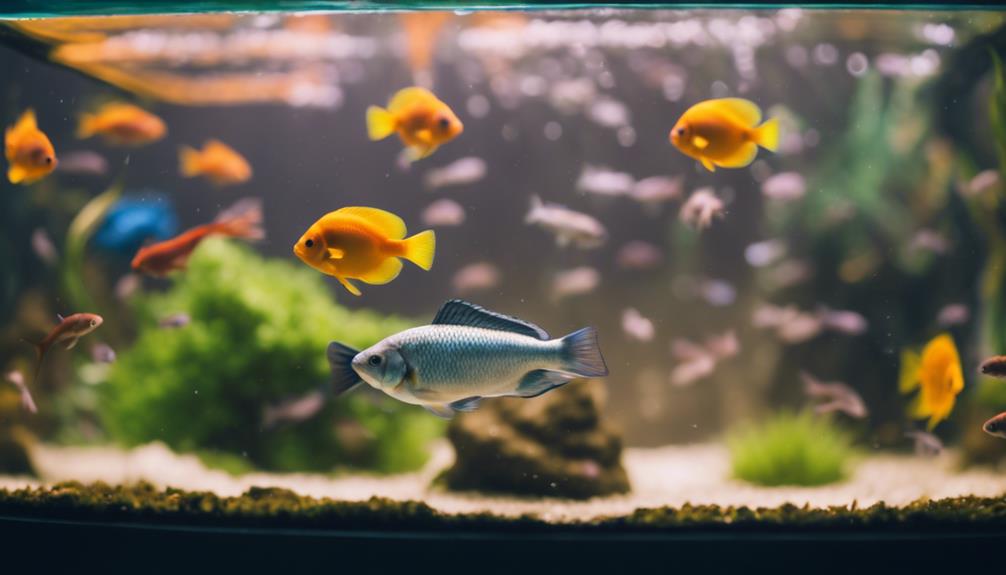To keep your fish tank healthy, prioritize tank size for comfort and reduce stress. Maintain stable water quality with appropriate pH and oxygen levels. Check water parameters diligently, especially ammonia and temperature. Clean and maintain your filtration system regularly, including monitor water circulation. Clean your tank every two weeks, removing uneaten food and waste to prevent organic buildup. Feed fish wisely with varied foods to prevent overfeeding and observe fish behavior during feeding. When introducing new tank mates, do it slowly and quarantine them first. Remember, proper care ensures a thriving fish tank.
Key Takeaways
- Ensure appropriate tank size for fish comfort and health.
- Maintain stable water quality with proper filtration.
- Monitor water parameters diligently for fish well-being.
- Regularly clean filter media and inspect equipment.
- Feed fish responsibly with a balanced diet and monitoring.
Tank Size Matters

When setting up a healthy fish tank, the size of the tank is a crucial factor to consider for the well-being of your aquatic pets. The size of your tank directly impacts the comfort and health of your fish. Inadequate space can cause stress and lead to territorial issues among fish. To create a harmonious environment, ensure your tank is appropriately sized for the species you plan to keep.
When it comes to tank decoration, be mindful not to overcrowd the space. Leave ample room for your fish to swim freely. Adding plants, rocks, and caves can provide hiding spots and enrichment for your aquatic friends. Creating a natural-looking environment not only enhances the visual appeal but also mimics their natural habitat.
